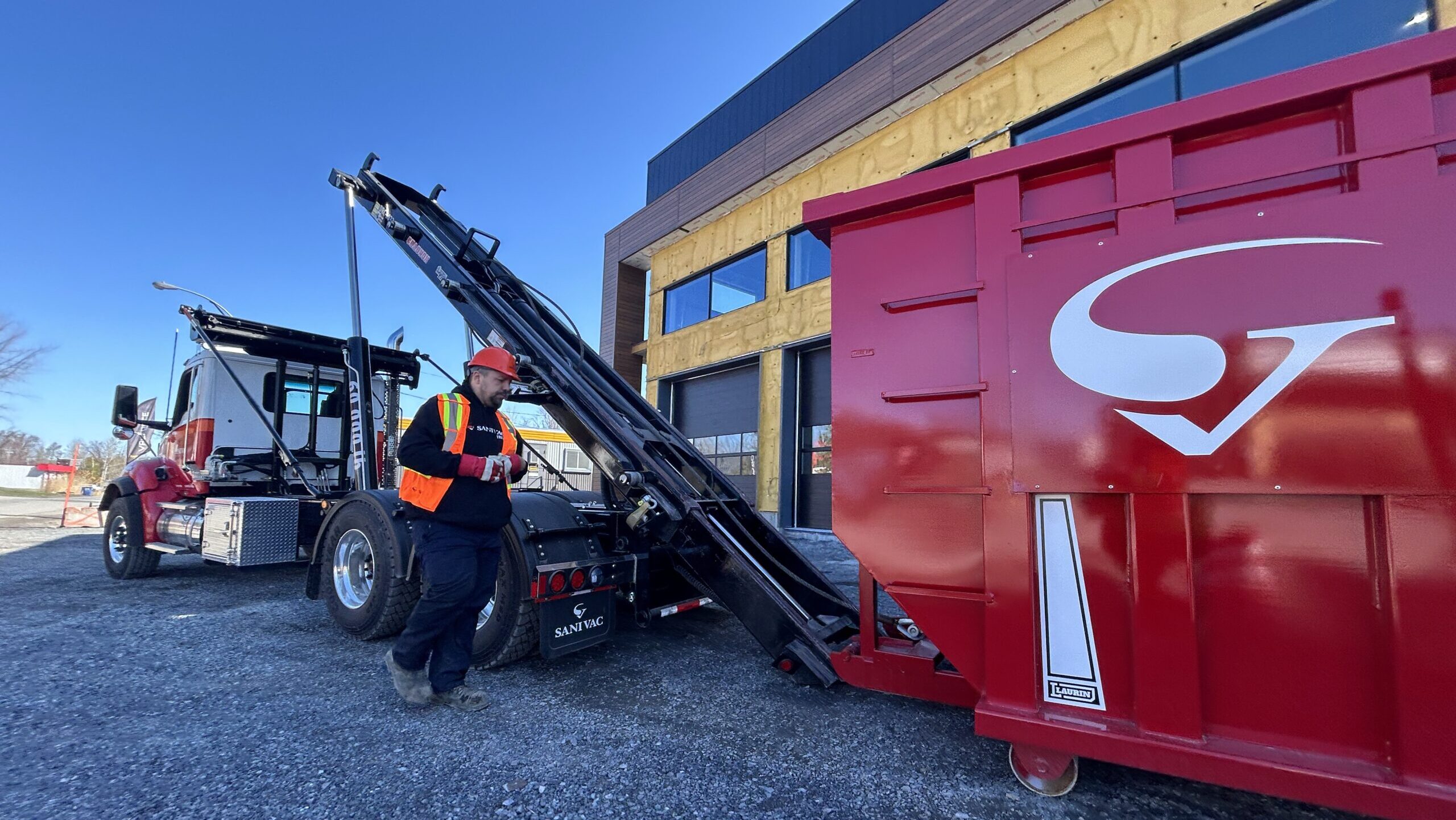What Can (and Can’t) Go in a Sanivac Container?
When planning to rent a container for a renovation, construction project, or major cleanup, one question comes up often: what can I throw in… and what’s not allowed? It’s more than just a formality. Understanding the list of accepted and prohibited materials helps you avoid unexpected fees, service delays—and most importantly—ensures responsible waste management.
At Sanivac, we believe in keeping things clear, simple, and efficient. This article provides a detailed overview of what can be placed in our containers, what to avoid, and tips for managing your waste in line with environmental standards. Whether you’re a contractor, homeowner, or site manager, this guide has the answers to help you avoid surprises.
Know Before You Throw
Renting a container for a construction, renovation, or cleanup project? Knowing what materials are allowed (and not allowed) is key. It’ll save you extra fees, missed pickups, and ensure your waste is handled responsibly.
Accepted Materials in Our Containers
Many materials can be placed in Sanivac containers—but only if sorted properly and deposited alone. Mixing prohibited materials with other waste may result in rejection or extra charges. We provide specialized containers, such as sealed or high-density options, for specific materials.
Some materials are not accepted—not by choice, but because they pose environmental or safety risks, or we are not authorized to handle them. In such cases, our team will guide you to reliable alternative solutions.
Our containers are designed to accommodate all types of residential, commercial, and industrial projects. Whether you’re renovating a kitchen, clearing out a basement, building an extension, or cleaning up a site, a wide range of waste types can be disposed of. All waste is sent to certified sorting and treatment centers in compliance with environmental regulations.
Construction & Demolition Waste
These are the most common use cases for our containers:
-
Wood, drywall, gypsum from walls, ceilings, or floors
-
Tiles, ceramic, bricks, concrete (small quantities)
-
Finishing materials such as trim, door/window frames
-
Non-hazardous insulation (asbestos-free)
These can usually go in a mixed-material container—as long as they’re not combined with prohibited waste.
Residential and Bulky Items
Perfect for moves, decluttering, or major home cleanups:
-
Used furniture (armchairs, sofas, chairs)
-
Mattresses, box springs, rugs, curtains
-
Dry household waste, cardboard boxes, broken items
-
Appliances without refrigerants (stoves, ovens, washers, etc.)
Green Waste (In Small Quantities)
Some green waste can be accepted, but only in limited volumes:
-
Tree branches, dead leaves, hedge trimmings
-
Dry grass, roots
-
Soil or gravel (depending on approved container type)
Special Materials (On Request)
Some materials require dedicated containers and prior approval due to their unique disposal requirements:
-
Asphalt shingles (dedicated containers only)
-
Dense materials (concrete, rock, asphalt)
-
Drilling mud from geothermal or well projects
-
Contaminated soil or hazardous debris (accepted only after validation)

Prohibited Items in Our Containers
While our containers can handle a wide variety of materials, certain items are strictly forbidden due to environmental, safety, and public health regulations. Throwing hazardous or regulated waste into a standard container can lead to serious consequences: fines, treatment refusal, container immobilization, and safety risks for our drivers and sorting facility staff.
When in doubt—always check with us first. We’ll propose safe, compliant alternatives like sealed containers, vacuum pumping, or specialized pickups.
Hazardous or Regulated Materials
These require specialized handling and transport:
-
Paint, used oil, gasoline or other flammable liquids
-
Car or machinery batteries
-
Propane tanks, gas cartridges
-
Industrial chemicals, pesticides, fertilizers
-
Tires (must go to an eco-center)
Biomedical or High-Risk Household Waste
These pose a serious health risk:
-
Medical waste, syringes, soiled bandages
-
Rotten or expired food (causes odor, pests, mold)
-
Pharmaceuticals or prescription drug waste
-
Dead animals or organic remains
Other Prohibited Materials
These are banned due to disposal regulations or handling issues:
-
Fridges, freezers, AC units (contain CFC gases)
-
Unemptied liquid containers or loose substances
-
Tanks, barrels, or drums (unless cleaned and certified safe)
-
Undeclared contaminated soil
Why Are These Materials Prohibited?
Each waste type must be sorted, transported, and disposed of according to strict regulations. Putting unauthorized materials in a container can result in:
-
Sorting or rejection fees at disposal centers
-
Pickup delays or container immobilization
-
Health and safety risks for workers
-
Environmental non-compliance
Our team is here to help and suggest compliant alternatives like sealed containers, vacuum pumping, or specialized disposal services if needed.
When in Doubt, Ask Us
Not sure if a material is allowed? Torn between two container types? Our customer service team is here to help you make the right choice quickly.
One call or photo can save you time and money. Check out our Container Types page to pick the right model for your project.
With Sanivac, It’s Simple, Compliant, and Efficient
Our mission is to provide fast, reliable container rentals that meet environmental standards. By choosing Sanivac, you get a one-stop solution for all your site needs: containers, portable toilets, pumping, hydro-excavation, and more.
📞 Call us or book online for a quick quote.
We’ll take care of everything—and save you a major headache! 👉 Book a Container
